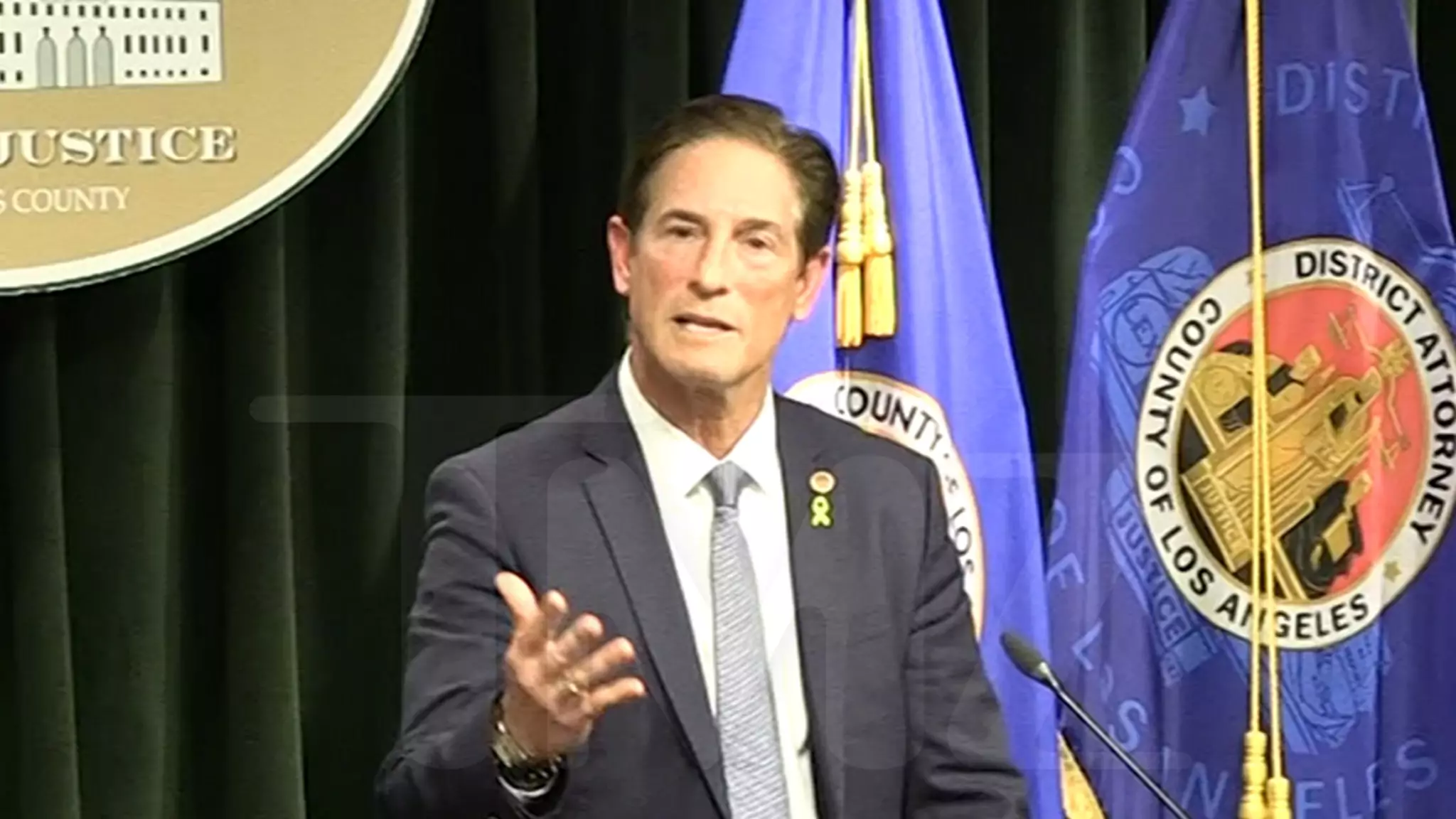The Menendez brothers, Erik and Lyle, have long been emblematic of the complexities surrounding crime, punishment, and familial bonds. With the recent appointment of Nathan Hochman as the L.A. County District Attorney, the dialogue about their potential release from prison has resurfaced. Hochman’s reluctance to share specifics about his initial meetings with family members signals a cautious approach to a case steeped in emotional and legal nuances. This development raises significant questions about the future of the Menendez brothers, who have been behind bars for nearly 35 years following the shocking murders of their parents.
At the heart of the Menendez case lies a fractured family narrative. While many relatives advocate for Erik and Lyle’s release, the District Attorney’s office seems not to be swayed purely by the quantity of familial support. Hochman has emphasized the importance of the substance of their statements over the numbers. This perspective aligns with the legal principle that each case should be assessed on its individual merits. As Hochman prepares for the upcoming resentencing hearing, he finds himself navigating a landscape shaped by both emotional narratives and factual assessments of the brothers’ behavior during their incarceration.
The Justice for Erik and Lyle Coalition has emerged as a critical advocate for the brothers’ freedom, buoyed by assertions of their rehabilitation throughout their incarceration. Their attorney, Mark Geragos, and the family argue that Erik and Lyle have transformed during their decades behind bars, embodying the potential for redemption. However, skepticism remains among some relatives, as seen in their silence regarding their views during interactions with the media. This divide complicates the already intricate dynamics as the district attorney weighs testimonies and opinions while trying to project impartiality.
The transition from former District Attorney George Gascón to Hochman reflects a shift in priorities regarding criminal justice reforms. Gascón had advocated for a resentencing of the Menendez brothers, underscoring their status as model inmates. In contrast, Hochman’s position remains ambiguous, suggesting a more conservative evaluation of the case. The change in leadership has also delayed proceedings, with the next hearing now pushed to 2025. This timeline leaves the future of the Menendez brothers in a precarious state, especially as their advocates work to demonstrate their evolution as individuals.
As the legal community and public monikers continue to analyze the Menendez case, the dialogue surrounding rehabilitation, familial support, and justice remains critical. Hochman’s cautious approach may resonate with many who believe that each decision should be rooted in a thorough examination of facts rather than public sentiment alone. As potential developments loom, the Menendez brothers—and the larger societal implications of their story—remain a poignant reminder of the complexities surrounding redemption, familial ties, and the intricacies of the legal system. The outcome of their case could significantly impact how similar cases are treated in the future, making it a focal point in discussions around justice reform and mercy in the penal system.

Leave a Reply